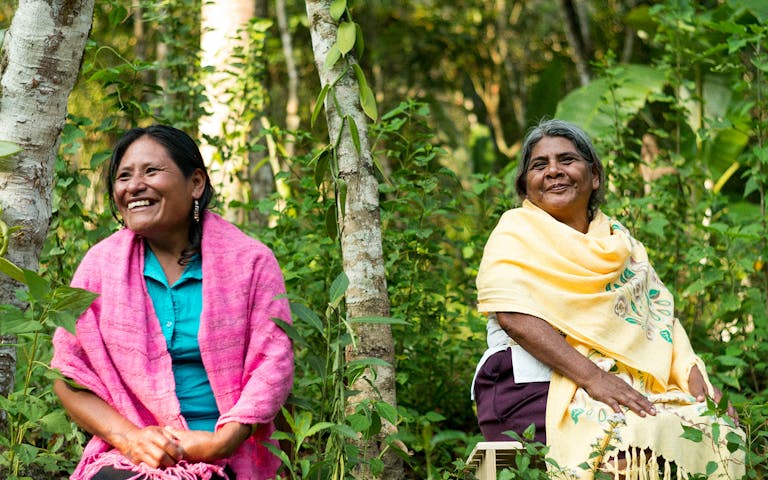
corporate responsibility
AXA & forests
Deforestation is a leading cause of global warming, biodiversity loss, carbon emissions and represents a double loss as forests are also carbon sinks. This is why AXA is committed to protect forests as areas of high biodiversity value.
Deforestation is one of the main causes of biodiversity loss and carbon emissions. It even represents a double loss for the climate because forests are the greatest contributors to carbon capture.
AXA’s plan to fight against deforestation to preserve biodiversity:
- 1.5 billion euros to support sustainable forest management
- New exclusions of activities that actively contribute to deforestation
- Specific protections for biodiversity reserves identified by UNESCO
See the press release and see the detailed policy.
AXA IM Alts and forests
AXA IM Alts (a global leader in alternative investments part of AXA Investment Managers) has a long standing history of managing forests on behalf of its clients, with the first investments dating back to the end of the 19th century.
Today, AXA IM Alts clients’ forest exposure represents a total of more than 85,000 hectares; of which 15,000 are located in France, 42,000 in Finland, 25,000 in Australia and the rest in Ireland.
When investing in forestry on behalf of clients, in addition to the financial performance that can be expected from forests as an asset class, our investment teams consider a range of factors such as the country’s climate, environmental quality, geopolitical situation and economy. Moreover, the domestic regulations in relation to protecting sustainable forest management and biodiversity are critical in analyzing these investment opportunities.
AXA IM Alts’ specialists provide dynamic management of its clients' forest portfolio through a selective acquisition process, enabling its environmentally conscious clients to allocate part of their investments to this asset class, providing an immediate response to their responsible investment needs.

A strong focus is put on the quality of the wood and the infrastructure to facilitate industrial harvesting, source investment and divestment opportunities through in-depth analysis of forest estates.
As a carbon neutral asset class, which is largely immune to economic cycles, forestry is a sustainable investment whereby forests managed by AXA IM Alts on behalf of clients are PEFC (Programme for the Endorsement of Forest Certification) or FSC (Forest Stewardship Council) certified at the time of acquisition or planned once under management. PEFC and FSC are independent certifications that designate the promotion of responsible forest management.
AXA IM Alts' is fully committed to responsible forestry. Our choice of forest management partners includes the requirement for evidence of their corporate and independent commitments to sustainable management and compliance with laws and regulations within each of the regions concerned. Additionally, AXA IM Alts works with local forest management to include adaptation of crop modes to meet soil constraints and risks, from composting of forest units, to climate change and to the growing threats of health crises affecting tree growth and existence. With support from researchers, we promote the conservation of existing monoculture forests, the diversity of species during logging operations in order to limit the area of clear felling and, over time, to promote management routes in Continuous- Cover-Forest. In France, AXA IM Alts have decided to limit the clear fell operation to 4 ha, significantly less than the area allowed by the regulations and management documents.
Going further with our commitment to protecting biodiversity by respecting classified and protected areas of forests, AXA IM Alts commits to devote in the long run 12% of forests to biodiversity to new areas of natural development and biodiversity and to monitor its evolution; and support education, recreation and research, granting access to certain companies, organizations and associations with a common interest in the forest preservation and its attributes.
Sustainable forest management is today at the heart of societal challenges such as the production of renewable materials, the fight against global warming and the conservation of biodiversity. To fully understand these challenges, it is necessary to understand the forest, its history, its sectors, its players and its economy.
AXA’s Impact investing funds
AXA launched its third Impact Investment
fund in 2019 with a strong focus on biodiversity protection and climate change.
AXA IM Alts announces the launch of a new Natural Capital strategy (‘the Strategy’), designed to support nature-based solutions. This commitment forms part of AXA Group’s €1.5 billion commitment to protect and sustainably manage forest ecosystems.
Last example in date, AXA committed $11 million USD to Forest Carbon for Wetland Forest Restoration Projects in Indonesia.
This project will lead to:
- The restoration of over 22,000 hectares of peatland forest,
- The delivery of close to 7 million tons of CO2 emissions reduction (as evidenced by the generation and sale of verified voluntary carbon credits),
- And the strengthening and conservation of over 20 species.
AXA Forests for Good
initiative
Forests contribute to the fight against global warming and biodiversity loss. They are also carbon sinks.
AXA is committed to protect forests as areas of high environmental value.
In October 2021, AXA announced new commitments to preserve biodiversity by implementing a plan to fight against the deterioration of forest ecosystems.
However, forest is a live estate and may suffer from climate change or be subject to disease or insect attack. AXA and a consortium of expert organizations join hands to restore forest areas in France to make harvested forests more resilient and share knowledge
In 2021, AXA committed to a new Natural Capital
target of €1.5 billion for reforestation to support forestry management projects in developed markets and natured-based solutions through initiatives such as afforestation, restoration and avoided deforestation which outcome can often be measured through the production of carbon credits with the objective is to sequestrate/avoid 25 mt CO2 on an annual basis.
To better select projects for internal and external clients to off set CO2 emissions. In 2021, AXA Investment Managers acquired ClimateSeed. This is an innovative marketplace that connects businesses seeking carbon credits with project developers offering carbon off setting projects. ClimateSeed has a portfolio of 36 projects in 24 countries. In total, they represent over four million verified carbon credits.
AXA Research Fund and forests – with Prof. Vincent Gauci
For a long time, climate change was regarded as our most pressing environmental concern. However, widespread damage to the Earth’s biodiversity and a hotter planet combined are changing the lives of plants and animals in ways we are only just beginning to understand.
Forests, especially tropical ones, host a wide diversity of plant and animal species, and store large amounts of carbon taken up from the atmosphere. As a consequence, deforestation has serious impacts for both climate change and biodiversity loss. To better understand the processes at work, AXA Research Fund former granted, Prof. Vincent Gauci presents the outcome of his studies on tropical forests, deforestation and climate change.
The Amazon is being depleted at the rate of a football pitch of tropical forest every minute.
The character of the landscape changes dramatically, from many hundreds of different plant species per hectare to maybe one or two. We know in Southeast Asia, there has been a 50% loss in Orangutans over the last twenty years due to deforestation and we are down to the last 300 or so Sumatran tigers in the wild.

After deforestation, these landscapes become more susceptible to climate change. We are moving towards a system that does not have the same level of resilience and is not able to adjust to climate shocks. And this releases carbon and adds to climate change…
Deforestation might also cause encroachment, leading to the additional challenge of human-species interaction.
The challenge is about people, their movement and livelihoods and balancing the needs for economic development with that for forest protection. This challenge goes beyond borders as commodities grown in tropical forests such as palm oil and paper are an integral part of global value chains.
There are efforts to reforest – this is part of the solution, especially if reforestation allows the growth of native trees that are better adapted to the environment and, in previously drained peatswamp forest, allow for better preservation and restoration of the water table.
Read the interview of Prof. Gauci.
AXA Climate and forests
We help our clients mitigate wildfire risk with parametric insurance. We rely on burned area indices that are linked to our clients' actual losses and detected in real time. We also rely on a large group of experts and scientist to provide incentives for climate adaptation and avert on future impacts.
Because we believe that forests offer one of the largest natural climate solutions, we work with key stakeholders to develop innovative insurance mechanisms to de-risk and accelerate carbon projects.

AXA and WWF Mexico
In Mexico, AXA’s engagement allows WWF to continue reforestation efforts with native species to recover the landscape and also to continue driving sustainable productive practices and agro ecological innovations, which are key components to develop a sustainable living, where people see the tangible benefits related to the conservation of nature.

The project funded by AXA establishes 4 general objectives (2020-2022):
- Restore forest landscape planting 30,000 native plant species annually, particularly in the upper parts of the watershed.
- Drive agroecological innovations and sustainable agricultural practices to reduce the impact of threats to the landscape.
- Strengthen the three community driven organizations that produce native plant species for each watershed ecosystem, including women cooperatives.
- Improve sustainable practices regarding reforestation and water use, including agroecological innovations and organic production.
Read the story of Miguel Palmas, Junior Water Official at WWF about the Copalita Zimatan Huatulco watersheds.